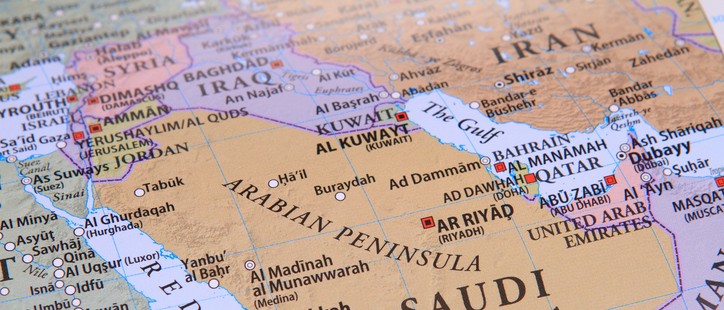Our Opinion: 2017
Tensions rising in Middle East

Over the weekend, Saudi Arabia launched an anti-corruption purge, intercepted a missile allegedly launched by Yemeni Houthi rebels, and the Lebanese Prime Minister Saad Hariri resigned, citing fears of Iranian meddling. These developments are all rising geopolitical tensions in the Middle East.
Besides the dispute between Qatar and the Saudi-led block, now entering its sixth month, new developments were reported over the weekend. Saudi Arabia launched an anti-corruption probe targeting members of the royal family, government officials, and businessmen. Meanwhile, Saudi Arabia intercepted a missile allegedly launched by Yemeni Houthi rebels towards the Saudi capital, marking an escalation of the ongoing conflict. Finally, the Lebanese Prime Minister Saad Hariri resigned, citing Iran’s role in Lebanon and fear of assassination by Iran in an address televised by the Al-Arabiya news network.
The anti-corruption push reflects rising domestic tensions, but may speed up reforms Crown Prince Mohammad Bin Salman (MBS) will head the newly established Anti-Corruption Committee, adding to his already wide-ranging powers as head of the military, as well as foreign, economic and social policies. The focus on fighting corruption might support MBS’s popularity among the Saudi population. A statement by Saudi Arabia’s top council underlined the importance of fighting corruption, thereby supporting the move.
At the same time, Crown Prince Mohammad Bin Salman’s strengthened position may facilitate the pursuit of reforms beneficial to the Kingdom’s long-term economic, governance, and social development prospects. Some of these might be seen as too radical by the more traditional parts of society, and domestic political instability will remain a risk factor given the ongoing commitment to profound economic and political changes. In this sense, the anti-corruption probe might be seen as a sign of rising political tensions within Saudi Arabia, occurring ahead of large planned privatizations of local assets. Market participants will therefore likely monitor future developments closely regarding the corruption probe. Finally, the increased focus on the origin and whereabouts of private Saudi wealth, as well as the seizure of illicitly appropriated assets and transfer to the state Treasury, as indicated in the royal decree, may lead to repatriation flows and alleviate the financing needs for the reforms.
Political tensions and instability will persist, and a back-pedalling on the already implemented and envisaged reforms poses a risk. A removal of MBS remains unlikely, as he is politically well-connected and enjoys the support of significant parts of the population. Also, the fact that some of the country’s leading business people were arrested may weigh on the private sector.
The intercepted missile highlights Saudi Arabia’s war against Houthi rebels in Yemen, who are backed by Iran. Also, the reference to Iran as the reason for the Lebanese Prime Minister to step down, indicates Iran’s role and influence in the region. The long-standing rivalry between Saudi Arabia and Iran represents a major downside risk for the whole region, and the recent geopolitical developments mark an escalation. Bahrain, in particular, is more exposed than others, due to its weak and deteriorating credit fundamentals.
A direct war between Iran and Saudi Arabia seems highly unlikely. However, negative headlines will affect investor sentiment toward the region, and this will trigger bouts of weakness in local assets. Investors need to take care.
6th November 2017
